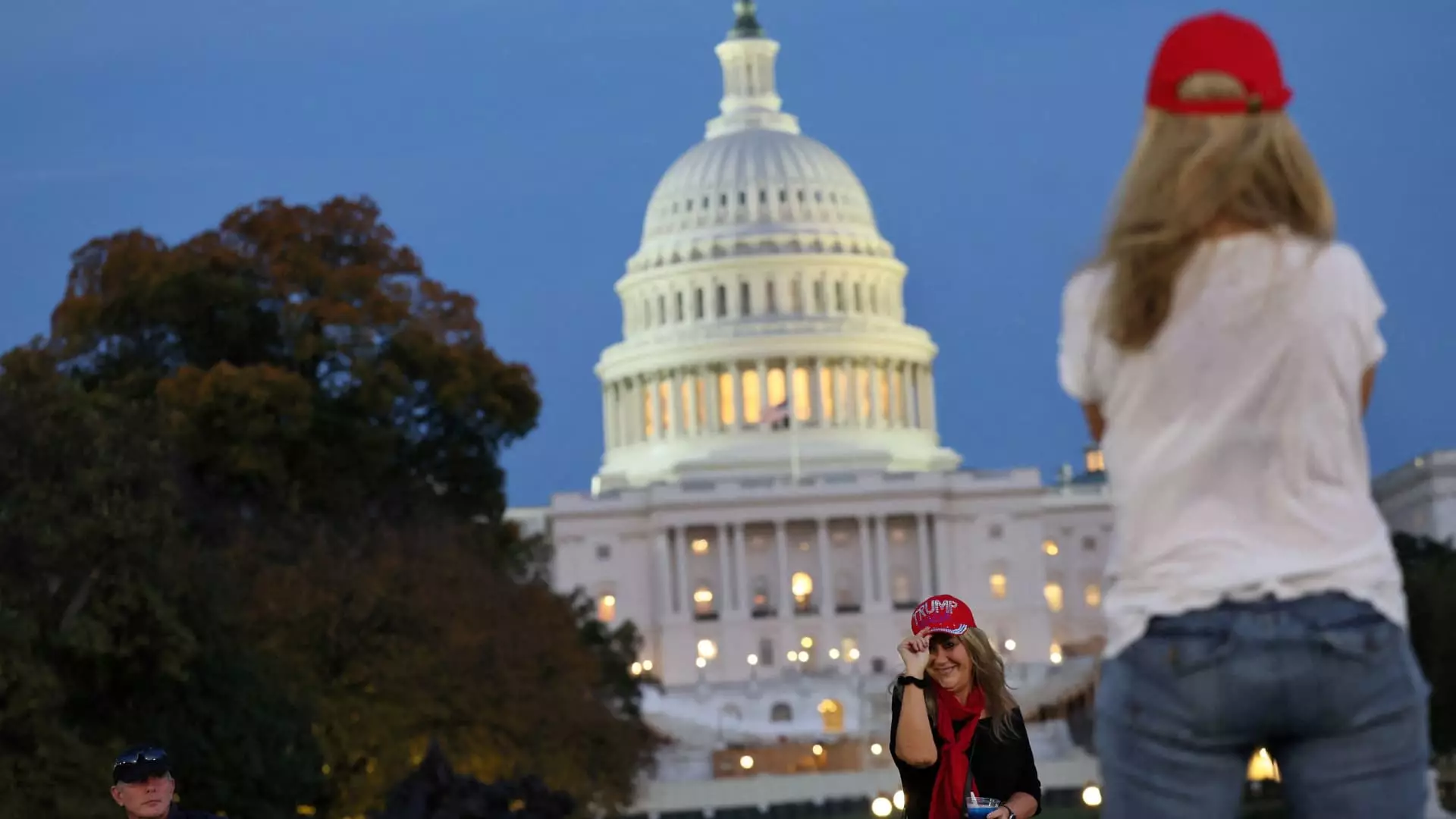The election of Donald Trump as president has stirred a mix of emotions and expectations among individual investors. Following the announcement of his victory, the stock market experienced a significant surge, marked by the Dow Jones Industrial Average breaching the 44,000 mark for the first time. However, experts in the financial sector advise caution. The prevailing sentiment among financial advisors is to adopt a wait-and-see strategy rather than making hasty adjustments based solely on election outcomes.
While the initial market rally post-election certainly created optimism, financial analysts urge investors not to conflate this sudden surge with the affirmation of Trump’s economic policies. According to Lee Baker, a certified financial planner, investors should refrain from making substantial financial shifts at this juncture. Although changes to asset allocation may be necessary in response to emerging policies, immediate action is not advised. The concerns primarily stem from the overall unpredictability surrounding Trump’s presidency and the potential implications of his proposed economic policies.
Markets thrive on stability, and the favorable response to Trump’s election could easily be misinterpreted as an endorsement of all his future decisions. Stacy Francis, CEO of Francis Financial, suggests that the market’s current buoyancy might stem from relief over the election’s clear outcome, diverging from the uncertainty that characterized the preceding campaign period. This underscores an important lesson for investors: market dynamics often hinge not just on leadership specifics, but also on broader psychological reactions to political events.
In the face of rapidly changing political landscapes, the most prudent approach may be to adhere to pre-existing financial plans. Jude Boudreaux, a certified financial planner, emphasizes the importance of maintaining a long-term strategy tailored to investors’ personal goals. This perspective resonates strongly with experienced advisors like Marguerita Cheng, who reiterates the importance of focusing on individual circumstances over national election results.
Asset allocations should predominantly reflect investors’ risk tolerance, time horizons, and personal goals, rather than shifting with the winds of political change. Such a tailored approach allows investors to weather the potential storms that might arise from Trump’s policies while remaining targeted in their investment strategies.
With Trump back in office, the speculation surrounding tax reform has also intensified. The Tax Cuts and Jobs Act enacted in 2017 initiated significant changes, leading to lower tax rates and different deductions. Experts suggest that Trump’s election might lead to the extension of these tax cuts, perhaps benefiting both corporations and individuals. Francis indicated that the anticipation of tax reductions could have added to the recent market momentum.
The prospect of lowering certain taxes, including those on Social Security benefits, potentially presents both opportunities and challenges. Although these policy suggestions might initially boost spending and economic activity, financial advisors caution that many proposals remain unrefined and unstructured. David Haas highlights the uncertainty in expecting changes that have not even been fully drafted or proposed, emphasizing the need for patience and awareness.
While tax cuts and regulatory relief could stimulate economic activity, caution is warranted regarding inflation, which poses a risk to long-term economic stability. If policies implemented under Trump lead to increased consumer spending paired with rising wages from tax cuts, inflation could escalate, thereby complicating monetary policy by the Federal Reserve.
Furthermore, new tariffs could lead to heightened costs on imported goods, which could exacerbate inflationary pressures. The recent rate cut instituted by the Federal Reserve anticipates a somewhat stable economic landscape, but uncertain variables introduced by Trump’s policies may alter this calculus. The central bank will have to navigate these potential changes carefully as they set future interest rates based on macroeconomic indicators.
The aftermath of Trump’s re-election presents a complex environment for individual investors. While the initial market euphoria may provide hope for a sustained upward trend, the unpredictable nature of political decisions necessitates a grounded approach to investment strategy. A well-composed financial plan, built on careful analysis of personal goals and conditions, is a necessity for navigating this evolving landscape. Investors are encouraged to stay informed, adapt when necessary, but fundamentally remain steady in their long-term strategies, allowing them to better weather any ensuing storms.

Leave a Reply